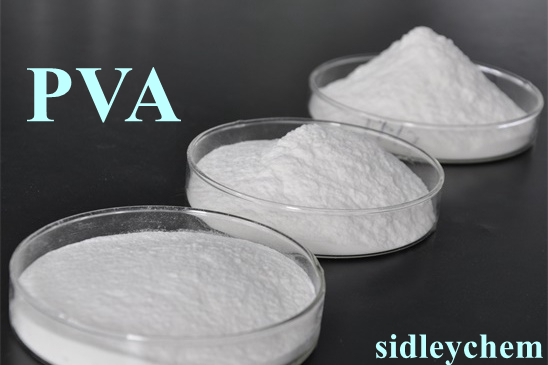In the pharmaceutical industry, choosing excipients — the inactive substances that serve as the vehicle or medium for a drug or other active substances — is crucial for ensuring medication stability, efficacy, and safety. Polyvinyl alcohol powder is one such excipient that has gained prominence due to its versatile properties, making it an essential component in various drug formulations. This article explores the multiple applications of PVA powder in pharmaceuticals, its benefits, and its potential for future developments in drug delivery systems.
Introduction to Polyvinyl Alcohol Powder
Polyvinyl alcohol (PVA) is a synthetic polymer produced by the polymerization of vinyl acetate, followed by hydrolysis. This process yields a water-soluble and biocompatible material that can be used in various forms, including powders and films. Polyvinyl alcohol powder is notable for its excellent film-forming, emulsifying, and adhesive properties. It is also resistant to grease and oil and has a high tensile strength and flexibility, which are desirable characteristics in pharmaceutical formulations.
PVA in Drug Delivery Systems
Controlled Release Formulations: One of the primary roles of PVA in pharmaceuticals is in controlled-release formulations. Polyvinyl alcohol powder can create coatings or matrices for tablets, capsules, and granules that regulate the drug release rate. This controlled release ensures a steady drug dose is delivered over an extended period, improving patient compliance and maintaining consistent drug levels in the bloodstream.
Solubility Enhancement: PVA is employed to enhance the solubility of hydrophobic drugs. By forming a composite or complex with a drug, PVA can significantly increase the aqueous solubility of substances that are otherwise difficult to dissolve. This is particularly important for improving the bioavailability of drugs, ensuring they can be effectively absorbed and utilized by the body.
Protective Coatings: PVA’s excellent film-forming abilities make it suitable as a coating agent in pharmaceuticals. It can provide a moisture barrier or an enteric coating that protects active ingredients from degradation by gastric acids, thereby ensuring that the drug is released in the intestines where absorption is optimal.
Applications of PVA in Ophthalmology
In ophthalmology, Polyvinyl alcohol powder is used extensively due to its lubricating and film-forming properties. It is a common ingredient in artificial tears and other ocular lubricants, which help to moisten and protect the eye surface. PVA forms a smooth film over the cornea, reducing friction and providing comfort for individuals suffering from dry eye syndrome.
Additionally, PVA is utilized in ocular drug delivery systems. Its ability to form hydrogel films is advantageous for contact lenses that release therapeutic agents directly to the eye over prolonged periods. This method of drug delivery can be used for treating various eye diseases, enhancing both the efficacy and patient adherence to treatment protocols.
PVA in Novel Drug Formulations
Nanotechnology: PVA plays a pivotal role in the burgeoning field of pharmaceutical nanotechnology. It is used as a stabilizing agent in preparing nanosuspensions and nanoparticles. These nano-formulations are designed to improve drug targeting and reduce side effects, particularly in treating cancers where targeted delivery can significantly impact the efficacy of therapy.
Biomaterials: PVA’s biocompatibility and non-toxic nature make it suitable for use in biomaterials. In tissue engineering, PVA can be used to fabricate scaffolds that support tissue growth and regeneration. This application is being explored in developing artificial skin, cartilage, and other tissue substitutes.
Environmental and Safety Aspects
The biodegradability of PVA under certain conditions is a significant advantage in its pharmaceutical applications. This property ensures that PVA-based materials, when discarded or excreted, do not persist in the environment, thereby reducing the ecological footprint of pharmaceutical products.
Moreover, regulatory agencies generally recognize PVA as safe (GRAS), and its nontoxicity is a critical factor in its widespread use in medical applications. The safety profile of PVA supports its continued use in various pharmaceutical formulations, offering reassurance to industry stakeholders and consumers.
Conclusion
Polyvinyl alcohol powder is a multifunctional excipient that enhances the performance of pharmaceutical formulations across a spectrum of applications, from controlled drug release to ocular therapeutics. Its role in improving drug solubility, enhancing patient compliance, and enabling innovative drug delivery systems is invaluable. As pharmaceutical science advances towards more targeted and efficient therapies, the versatility of PVA will likely make it a cornerstone in developing new medicinal products. The ongoing research into its applications promises to expand its uses and enhance the overall effectiveness and safety of pharmaceutical therapies, marking PVA as a critical component in the future of medicine.
Kuraray Poval™ is a renowned brand of polyvinyl alcohol (PVA) produced by Kuraray Co., Ltd., a leader in specialty chemical solutions. Known for its exceptional adhesive, film-forming, and emulsifying properties, Kuraray Poval™ is widely used across diverse industries, including textiles, paper, adhesives, and more. Its biodegradability and water solubility make it particularly valuable in applications demanding environmental sensitivity and high performance. For more details reach out to the website Kuraray-poval.com.

